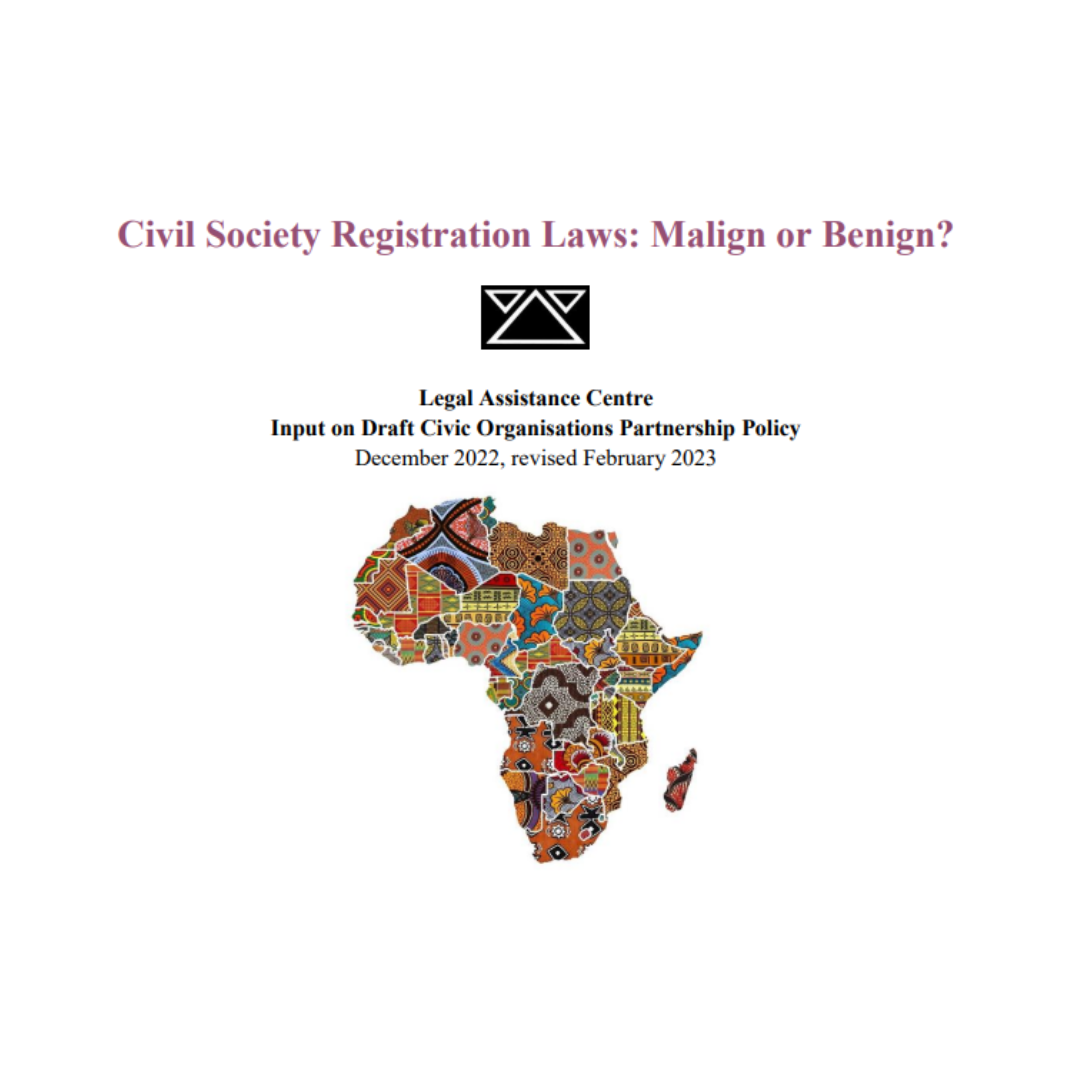LAC - Civil Society Registration Laws: Malign or Benign?
LEGAL ASSISTANCE CENTRE | While these general objectives [of the Government of the Republic of Namibia Civic Organisations (GRN-CO) Partnership Policy] are positive in themselves, a worrying factor is the theme of Government involvement in mobilising, shaping, and influencing civil society – which is, by definition, separate from Government.
The policy, on the one hand, acknowledges the diversity and independence of civil society – but on the other hand, it proposes an excessive level of Government involvement such as Government-spearheaded campaigns to encourage civic involvement, Government-facilitated networks that can assure the “legitimacy” of specific NGOs, and a regulatory environment with the goal of “eliminating undue competition and overlapping mandates”.
The policy assigns inappropriate roles to civil society, such as its description of NGOs as “national development agencies” that are “intermediary organisations between local communities and other development actors, such as Government, International Development Partners, and the private sector”. The policy also talks about measurements of the impact of the “development initiatives” of civic organisations, to evaluate their impact on the livelihoods of people – without recognising that it is entirely appropriate for civil society to act in opposition to “development initiatives” that might threaten the environment or interfere with human rights. Supporting development is not the sole objective of the NGO community, where NGOs may (for instance) act as watchdogs that oppose initiatives that are not considered to be in the public interest.
Civil society by its very nature must develop organically and remain free from government agendas so that it can cooperate or criticise as the situation requires.
There is nothing wrong with encouraging appropriate partnerships between Government and civil society, and the emphasis on increased information sharing is welcome. For example, Government newsletters and tender bulletins that provide information to civil society on partnership opportunities would be welcome, and the idea of a “partnership help desk” at the National Planning Commission Secretariat sounds like an initiative that could positively enhance channels of communication.
But the encouragement of partnerships between Government and civil society on specific initiatives does not require an overarching, statutory regulatory scheme or excessive Government involvement in civil society in general.
---
Read the Legal Assistance Centre's Input on the GRN-CO Partnership Policy on their website: http://www.lac.org.na/projects/grap/Pdf/Civil_Society_Registration_Laws-Malign_or_Benign-revised_23_Feb_2023.pdf?fbclid=IwAR3Bnb6qjp8naek7PuG8MVeqrj23q0VJzMPo_AGL7GsnyIolv-odpkhPmGU
When you subscribe to the blog, we will send you an e-mail when there are new updates on the site so you wouldn't miss them.
